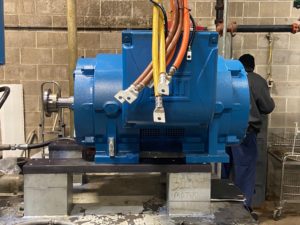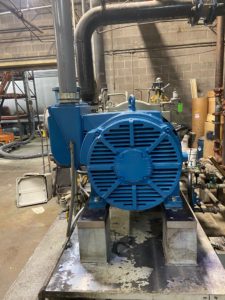To minimize the risk of being in the vicinity of high voltage when testing your electric motors, your electric reliability team or plant safety management may have opted to install a test access panel. This allows you to test your critical electric motors while running without opening a single cabinet. Although the large majority of these Motor Test Access Panels (MTAP’s) are installed without a problem, always test after installation to insure everything is connected properly. Here are a few tips from the field to validate your installation.
· Verify the voltage input to the MTAP matches the voltage rating of the MTAP. There are four possible MTAP voltage ratings (120v, 240v, 480v and 600v). Under sizing the MTAP voltage rating will saturate the MTAP isolation transformer, resulting in excessive current that will open safety fuses on the MTAP. The most common mistake is installing a 120v MTAP designed for a medium voltage 2-PT open delta secondary into a 3-PT secondary which delivers a 240v signal to the MTAP.
· Verify the output of the MTAP makes sense for voltage and current phase relationships. The MCEGold® Phasor diagram is the best source for this. I1 should be lagging V1 for a standard induction motor by an angle relative to the motor load. The higher the load the lower the angle between voltage and current. The same applies for phases two and three.
· If connecting a MTAP to a synchronous motor, the current may actually lead the voltage if the synchronous motor field excitation is increased.
· The MTAP current input is looking for a voltage (333mV/amp) from a Current Transformer (CT) with a load resistor. Do not connect a metering CT with a 1-5 amp output directly to the MTAP. If you only have two available current sources to connect the MTAP CT’s to, make sure you select “Missing Current” in the test setup to properly calculate the missing phase current.
· Phase leads are often swapped at the starter or in the motor connection box to reverse the rotation of the motor. This can make connecting the correct current and voltage phases more difficult. If necessary connect one phase at a time and retest until you are able to tell which phase of voltage goes with which phase of current.
Credit: PdMA Corporation
 Emma Mallory, a former student at Mt. Zion High School, has received a $1,000 scholarship to help cover educational related expenses for the upcoming school year. She will be majoring in business management at Millikin University.
Emma Mallory, a former student at Mt. Zion High School, has received a $1,000 scholarship to help cover educational related expenses for the upcoming school year. She will be majoring in business management at Millikin University. 






